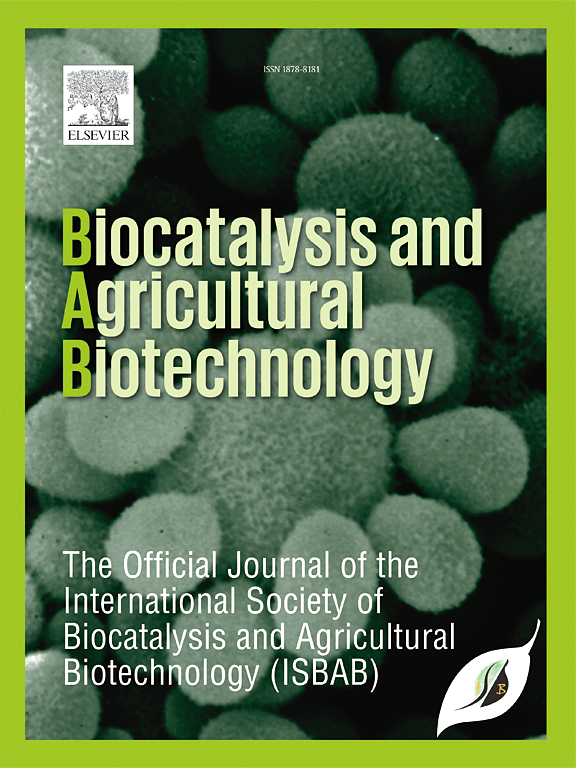Physiological response of tomato plants grown in saline and non-saline soils to foliar application of SiO2/TiO2 nanocomposites
IF 3.4
Q2 BIOTECHNOLOGY & APPLIED MICROBIOLOGY
引用次数: 0
Abstract
Silicon dioxide (SiO2) and titanium dioxide (TiO2) nanoparticles have been shown to enhance growth and mitigate the adverse effects of salinity stress in various crops. This study investigated the effects of SiO2/TiO2 nanocomposites (NCs) on tomato plants (Solanum lycopersicum) under both normal and salt-stress conditions. For this purpose, tomato plants were irrigated with 0, 60, or 120 mM NaCl solutions for 30 days. Fifteen days after initiating the salt treatment, SiO2/TiO2 NC suspensions at concentrations of 0, 50, 100, and 500 mg/L were applied via foliar spray. The results showed that, under non-saline conditions, foliar application of SiO2/TiO2 NCs significantly increased the number of leaves, shoot dry weight, total chlorophyll, carotenoid content, soluble sugars, anthocyanins, and total phenolic content in tomato plants. Under saline conditions, the positive effects of SiO2/TiO2 NCs varied depending on the NaCl concentration in the soil. In plants exposed to 60 mM NaCl, SiO2/TiO2 NCs improved shoot fresh weight, total chlorophyll content, proline and soluble sugar levels, catalase activity and reduced H2O2 content, as well as increased total phenolic and anthocyanin content. These findings suggest that the SiO2/TiO2 NC application increases biomass production and improves the salt tolerance of tomato plants. Therefore, these nanomaterials could be a promising option for promoting tomato growth in slightly and moderately saline soils.

求助全文
约1分钟内获得全文
求助全文
来源期刊

Biocatalysis and agricultural biotechnology
Agricultural and Biological Sciences-Agronomy and Crop Science
CiteScore
7.70
自引率
2.50%
发文量
308
审稿时长
48 days
期刊介绍:
Biocatalysis and Agricultural Biotechnology is the official journal of the International Society of Biocatalysis and Agricultural Biotechnology (ISBAB). The journal publishes high quality articles especially in the science and technology of biocatalysis, bioprocesses, agricultural biotechnology, biomedical biotechnology, and, if appropriate, from other related areas of biotechnology. The journal will publish peer-reviewed basic and applied research papers, authoritative reviews, and feature articles. The scope of the journal encompasses the research, industrial, and commercial aspects of biotechnology, including the areas of: biocatalysis; bioprocesses; food and agriculture; genetic engineering; molecular biology; healthcare and pharmaceuticals; biofuels; genomics; nanotechnology; environment and biodiversity; and bioremediation.
 求助内容:
求助内容: 应助结果提醒方式:
应助结果提醒方式:


